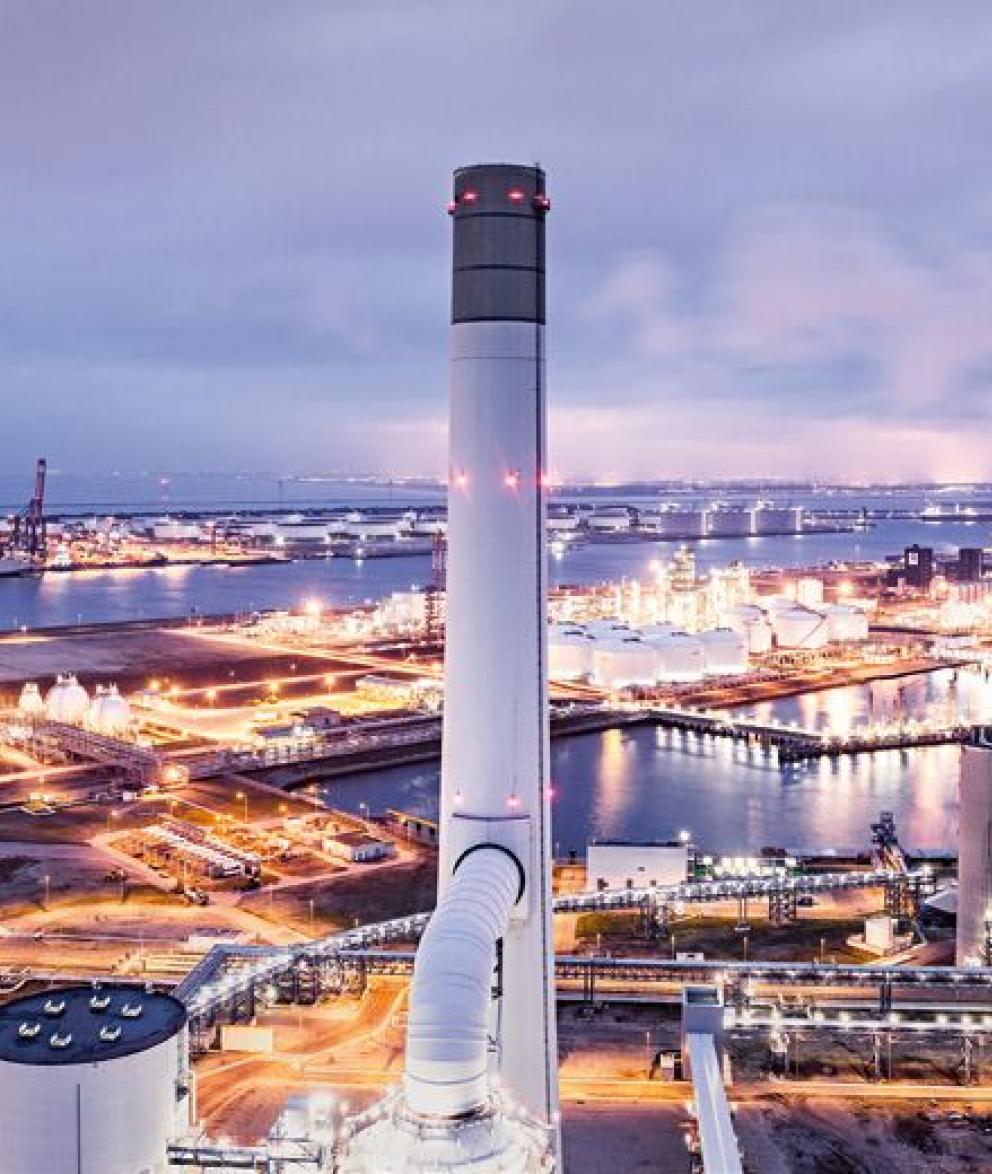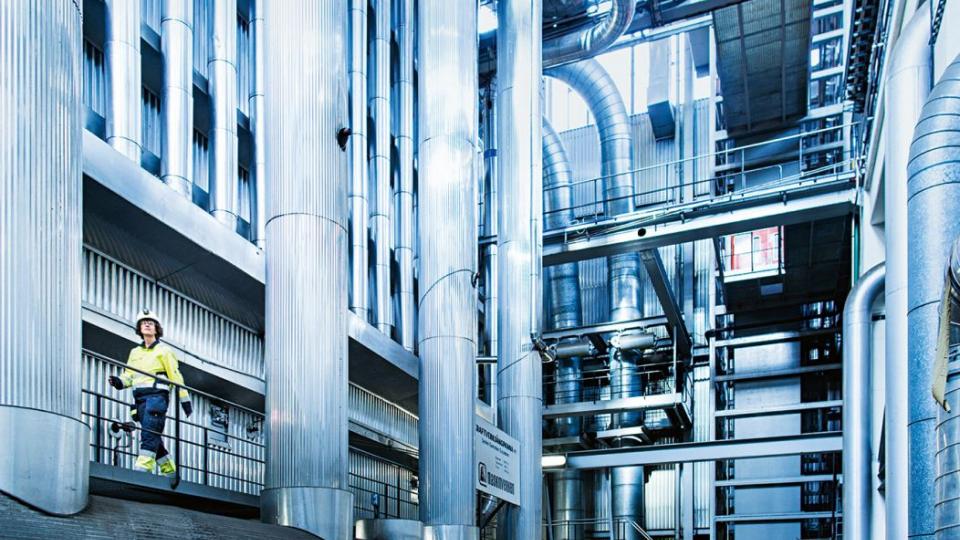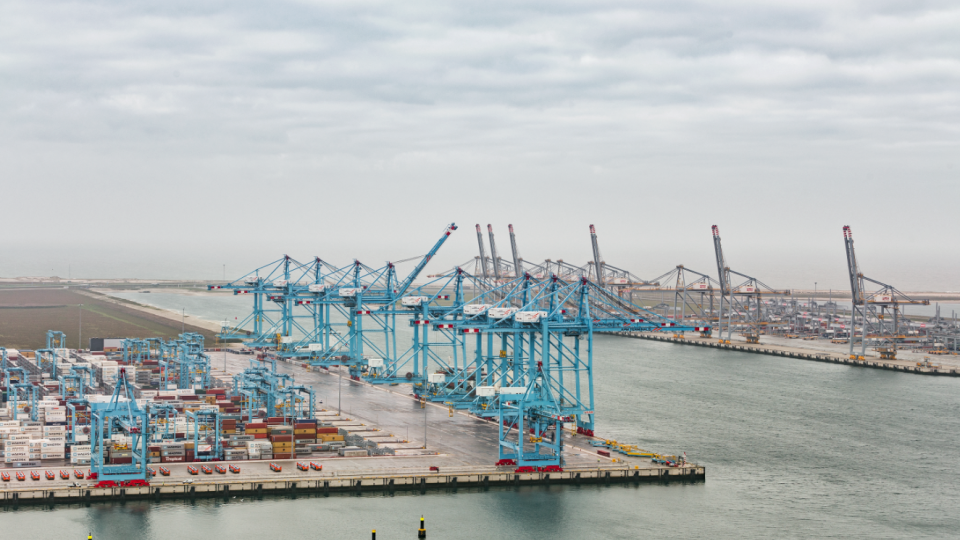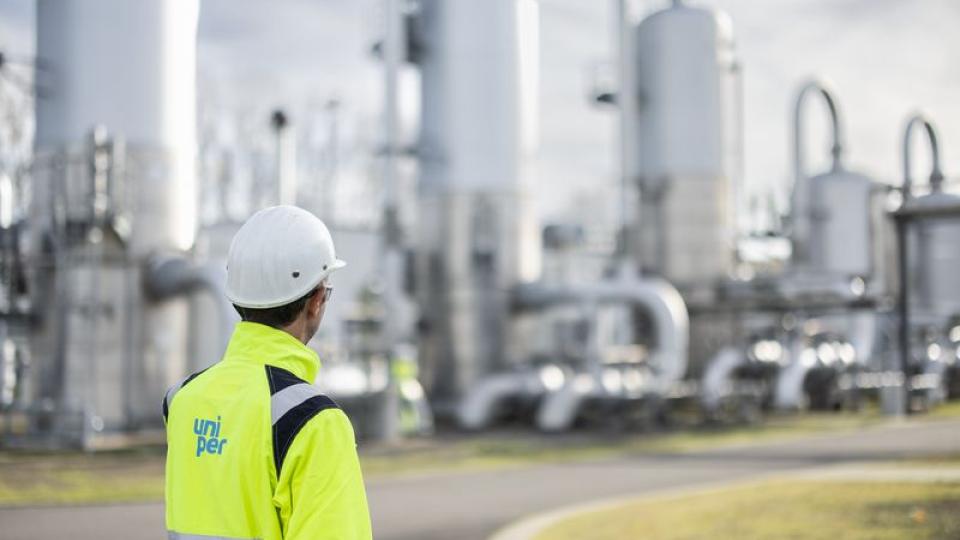Our technologically advanced power stations in Rotterdam, The Hague and Leiden provide district heating to residents and ensures a reliable supply of energy in the built environment. At the Maasvlakte, we operate on an industrial scale and provide flexible services to help industrial customers with their energy transition.
While four of our plants are powered by natural gas, our Maasvlakte Power Plant 3 at Maasvlakte is coal-fired and therefore due to close in 2029. In the future, we want to transform the Maasvlakte site into a large-scale production site of green hydrogen that would help contribute to the Dutch hydrogen targets.
To help the phase-in of clean energy, we also aim to supply a range of innovative energy products and services to our partners and customers throughout the Zuid-Holland region. This includes providing steam to industrial facilities located near our power plants and using biomass with sustainability proof (such as SBP, GGL, FSC and PEFC) and industrial by-products (such as biopropane) to generate power and heat.
Uniper City Power Plants
The natural gas-fired power stations in Rotterdam, The Hague and Leiden produce both electricity and heat. By means of STEG technology (Steam and Gas Turbine), also known as CHP, natural gas is converted into electricity. Heat is released during this process. This 'tapping heat' or residual heat is then supplied to the heat network. Households that are connected to this heat network receive the heat needed for tap water and heating (in other words, the shower, kitchen tap and central heating in your home). The electricity is supplied to the electricity market and fed into the 150 KV stations of the regional electricity grids.
Although natural gas is a relatively clean energy source and the CCGTs are extremely efficient, a transition to other energy sources will take place in the coming years. By phasing out natural gas, among other things, the Dutch government aims to realise the climate objectives. Uniper intends to be completely carbon-neutral by 2040, and aims for its installed power generating capacity to be more than 80% zero-carbon by 2030.
For our city power stations, this means that we will continue to produce energy but will increasingly use other sources to do so. We see green gas and, in time, sustainable hydrogen, as promising applications. Aquathermal energy, the use of energy from surface water, is another application that Uniper considers reliable for a sustainable energy supply. In addition, we are working with partners to add geothermal energy (heat from deep underground, geothermal energy) and residual heat (heat remaining after electricity production and/or industrial processes) to local heat networks.
See our press releases and animations for more.
Our power plants in the Netherlands
| Country | Installed capacity | |||
|---|---|---|---|---|
|
Image
|
Leiden city plant | Netherlands | 85MWe | |
|
Image
|
Rotterdam Capelle | Netherlands | 264MWe | |
|
Image
|
The Hague city plant | Netherlands | 107MWe | |
|
Image
|
The Maasvlakte Power Plant 3 | Netherlands | 1070MWe | |
|
Image
|
Utility Centre Maasvlakte Leftbank | Netherlands | 70MWe |
Find out more
Learn more about all of Uniper's energy sources and generation capacity.
The Maasvlakte project is a brown field project at Uniper’s Maasvlakte location. The project enables the transition to a green economy by producing green hydrogen in one of the most promising and strategic location Port of Rotterdam.
Uniper has a strong portfolio of assets, sites and competencies. Our people's expertise gives us an unrivalled energy IQ. This is indispensable for the flexibility of today's energy system, and tomorrow's.



